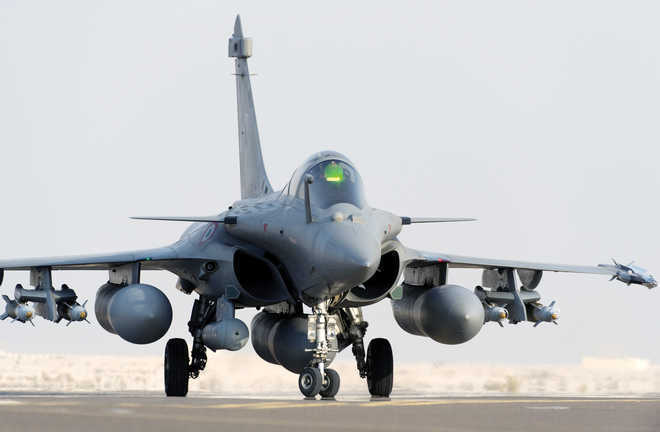
The Defence Ministry’s disclosure about its plans to invite a foreign manufacturer to make 110 fighter jets in India has expectedly set the world’s major military-industrial complexes agog with expectations. Nearly three years after the Modi government scrapped the tenders for 126 fighters and then opted to buy 36 from the French, the wheel has come around in a full circle. The government had defended its retail-level purchase of just two fighter squadrons by hinting at another purchase plan up its sleeve that would bridge the gap between the requirement (42 squadrons) and the inventory (31 squadrons). It now appears that the government has formalised its often-aired intention of asking a foreign company to set up a combat jet manufacturing plant in India.This is an opportunity pregnant with several possibilities. If the plan succeeds, India will be able to lift itself in the technology adaptation ladder by several notches. The combat jet plant could become a strategic asset if the planes are exported to neighbouring countries. But as the UPA I discovered after ineffectually grappling with the 126 fighter jet tender for the bulk of its term, defence technologies are not readily available on tap. There may hardly be an example of a foreign defence behemoth transferring sensitive technology. They prefer to export ready-made jets or, at best, assemble them in the recipient country.India’s procurement culture is marked by a lack of transparency and often national security becomes the standard argument to avoid accountability for professional neglect. No heads are likely to roll for having kept the IAF fleet depleted for over a decade. The malaise extends to the other two services as well — outgoing service chiefs at times have drawn attention to the danger of India falling behind the equipment curve. Apart from failing to efficiently manage its arms procurement decisions, the absence of the Planning Commission means the government is unable to take into account national and societal needs while planning to induct expensive advanced weapons systems. This absence of a national planning system may prove costly for the country’s national security in the long run.
